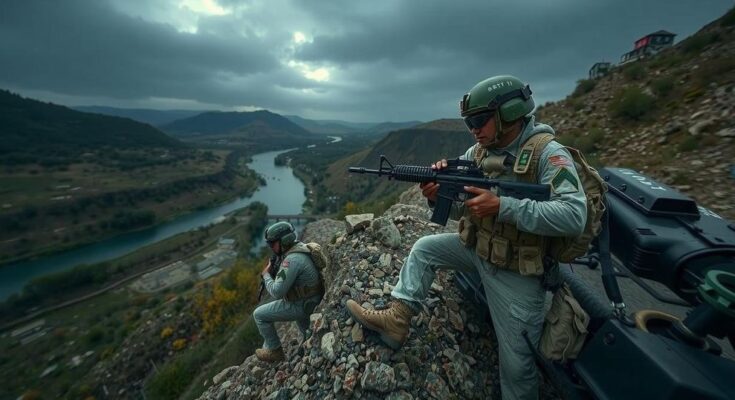IDF troops have reached the Litani River in Lebanon for the first time in over two decades amid preparations for a potential ceasefire. Prime Minister Netanyahu addressed the nation to summarize military operations and the current situation, while demonstrations in Tel Aviv opposed the ceasefire agreement. Hezbollah’s increased attacks prompted significant military actions in Beirut, with U.S. Secretary of State Antony Blinken advocating for the ceasefire’s potential benefits for regional stability.
On Tuesday, the Israel Defense Forces (IDF) executed significant military operations in Lebanon, marking their first foray into the area surrounding the Litani River in over two decades. This response coincided with heightened tensions and ongoing discussions regarding a potential ceasefire that could be announced soon. Prime Minister Benjamin Netanyahu addressed the nation, highlighting the IDF’s actions across Gaza, Lebanon, the West Bank, and Syria, and underscoring the pressing need for a ceasefire given the current dynamics with Hezbollah. Concurrently, protests erupted in Tel Aviv against the proposed ceasefire, reflecting opposition from several organizations who believe it could jeopardize Israeli security.
As attacks directed by Hezbollah increased, demonstrations under slogans such as “Agreement = destruction” gained traction, suggesting a growing unease among certain sectors of Israeli society regarding the ceasefire negotiations. U.S. Secretary of State Antony Blinken articulated that a ceasefire could bring stability to the region, countering the prevailing threats posed by Hezbollah. However, the situation remains tense, with the IDF’s strategic strikes targeting Hezbollah’s infrastructure in Beirut perceived as vital to safeguarding Israeli interests ahead of political discussions concerning a truce.
Furthermore, during the territorial and political turmoil, Iran’s ambitions to maintain influence in Lebanon were underscored, denoting concern over the evolving geopolitical landscape. Reports suggest that an announcement of the ceasefire may come at 10 p.m. local time, pending the formal approval from Israeli leadership during an upcoming war cabinet meeting. The complexity of the situation is compounded by a recent investigative report criticizing the Netanyahu administration’s preparedness for the covert Hamas attacks on October 7, which resulted in significant casualties.
The ongoing conflict in Lebanon, particularly involving Hezbollah and Israeli forces, reflects long-standing tensions rooted in territorial and political disputes. The recent escalation in hostilities follows a grave attack by Hamas on October 7, 2023, prompting a robust military response from Israel. The re-engagement of IDF troops towards the Litani River signifies a shift in operational strategy that could redefine relations within the region. Discussions about a ceasefire are particularly critical as they encompass broader implications for regional security dynamics, including Iran’s influence through Hezbollah.
In conclusion, the complexities of the unfolding situation in Lebanon require careful consideration of both military and diplomatic strategies. The IDF’s operations reflect Israel’s stance on countering threats, while the potential ceasefire signifies a crucial juncture that could either stabilize the region or provoke further unrest. As various stakeholders voice their opinions, the impact of these decisions will resonate beyond immediate borders, affecting regional security and geopolitical dynamics significantly.
Original Source: www.jpost.com




